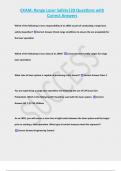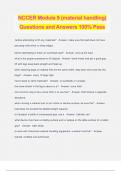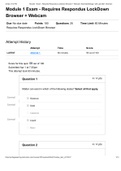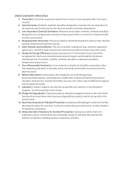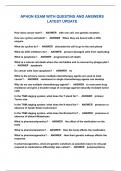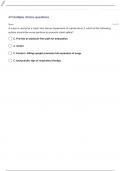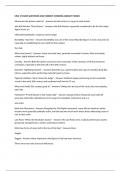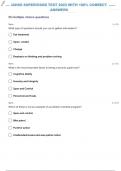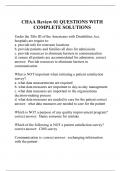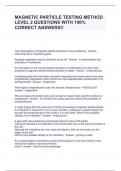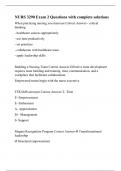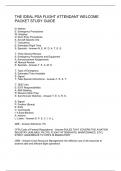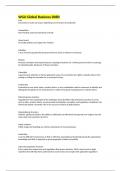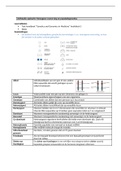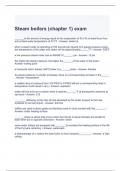Intelligence
What is Intelligence?
Two dozen prominent theorists were asked to define intelligence
They gave two dozen somewhat different definitions
Social Intelligence
being good in social contexts
Makes you adaptable
Can tests tell us how smart we are?
Which tests would those be?
Intelligence is fluid- what is intelligent in one community won’t be intelligent in another
Broad definition
The ability to acquire knowledge, to think and reason effectively, and to deal adaptively with the
environment
ability to solve problems
ability to understand and learn complex material
ability to adapt to one’s environment
mental quickness
Intelligence is a socially constructed concept
Skills necessary for success vary from culture to culture
1. within a culture (subcultures)
2. across time
What constitutes intelligence is culture specific
Early misuse
Early misuse to prove social and political ideologies, and consolidate stereotypical beliefs
Eugenics
In SA racial segregation policies informed the development and use IQ tests:
1925: SB test normed for use on white children ⇒ Fick Scale: Then later used on Black, Coloured,
Indian, and White Children
Bantu education was based on notions of Black Intellectual inferiority based on Fick’s test
Effects still linger today, with consequent racial, socioeconomics, and cultural stereotyping.
Tests of mental skills
Tests of mental skills have become an important part of our lives:
Educational
Occupational
Intelligence 1
, Clinical
Social policy decisions
1. Is intelligence a single aptitude or many abilities?
Many abilities
E.g. Some cognitive functions may not work when the brain is damaged
emotional intelligence
2. Why do individuals differ in intelligence (tests)?
3. Is intelligence innate or a product of upbringing?
a bit of both
4. What brain processes underlie intelligence?
5. Can psychometric tests capture intelligence(s)?
a. What do IQ scores mean? What do they predict and how well do they predict it
6. Do various ethnic groups display different performance in I-tests and if so what may explain those
differences?
Intelligence from a historical perspective
Early work on intelligence can be traced to Sir Francis Galton and Alfred Binet.
Sir Francis Galton (1822-1911)
Genetics/eugenics
His idea was that imminence and ‘genius’ ran in families and was hereditary
He thought certain “inherited” mental capacities made eminent people more fit for thinking
To investigate his hypothesis he made physical/sensory measurements on members of eminent family
trees.
Reaction speed, hand strength, sensory acuity, skull size
Results from his tests had poor predictive power but triggered a tradition of controversy
What are the weaknesses in Galton’s methodology?
biases
learning disabilities
different ethnicities and cultural differences
Alfred Binet (1857-1911)
Mental abilities test
His task was to develop an objective intelligence test for school children
Key: Quantification of a child’s current performance
Produced the first workable intelligence test in 1905
Binet’s approach was simple:
1. Test large numebrs of children of various age groups
Intelligence 2
, 2. Establish average scores (norm) for each age
3. Compare a child’s performance to the norms
He proposed that is majority of children of a given age can complete a task, that task requires that mental
age (MA)
They noticed that the fast learners seemed to give answers to questions that older children might give,
whereas the slow learners gave answers that were more typical of a younger child
William Stern
Expanded the concept of MA to a relative intelligence score (IQ) for different ages.
IQ=ratio of mental age to chronological age, multiplies by 100 (IQ= MA/CA x 100)
Allows some limited comparisons across age groups
Stanford-Binet Test
Based on Binet’s test; revised by Lewis Terman for use in the USA
Contained mostly verbal items and yielded a single IQ score
The stanford-binet test became a common standard measure in:
Clinical psychology, Psychiatry, Educational counselling
At the bottom of it all was an assumption that intelligence was largely hereditary and stable
The concept of MA is not useful for adults
It’s better to judge performance against normative scores (an individual’s standing in a normative group
of the same age).
What are the advantages of using normative scores?
David Wechsler (1896-1981)
Note that the SB relied too much on verbal skills and had single score, items and timing more suitable for
children, did not consider that intellectual performance can deteriorate as a person grew older
WAIS-R, WISC-IV, WPPSI-R
Measures of both verbal and nonverbal abilities:
He believed in a single factor of intelligence, but thought that it consisted of specific, interrelated
elements
1. Verbal Scale IQ
2. Performance Scale IQ
Less affected language and culture
3. Full Scale IQ
to get a measure of overall intelligence, simply aggregate the capabilities on each of the separate
elements
The structure of the WISC-IV
The WISC-IV has four specific cognitive domains (indexes) which together contribute to the Full Scale IQ
Each of the four Index scores is derived from a number of subtest scores.
Intelligence 3
What is Intelligence?
Two dozen prominent theorists were asked to define intelligence
They gave two dozen somewhat different definitions
Social Intelligence
being good in social contexts
Makes you adaptable
Can tests tell us how smart we are?
Which tests would those be?
Intelligence is fluid- what is intelligent in one community won’t be intelligent in another
Broad definition
The ability to acquire knowledge, to think and reason effectively, and to deal adaptively with the
environment
ability to solve problems
ability to understand and learn complex material
ability to adapt to one’s environment
mental quickness
Intelligence is a socially constructed concept
Skills necessary for success vary from culture to culture
1. within a culture (subcultures)
2. across time
What constitutes intelligence is culture specific
Early misuse
Early misuse to prove social and political ideologies, and consolidate stereotypical beliefs
Eugenics
In SA racial segregation policies informed the development and use IQ tests:
1925: SB test normed for use on white children ⇒ Fick Scale: Then later used on Black, Coloured,
Indian, and White Children
Bantu education was based on notions of Black Intellectual inferiority based on Fick’s test
Effects still linger today, with consequent racial, socioeconomics, and cultural stereotyping.
Tests of mental skills
Tests of mental skills have become an important part of our lives:
Educational
Occupational
Intelligence 1
, Clinical
Social policy decisions
1. Is intelligence a single aptitude or many abilities?
Many abilities
E.g. Some cognitive functions may not work when the brain is damaged
emotional intelligence
2. Why do individuals differ in intelligence (tests)?
3. Is intelligence innate or a product of upbringing?
a bit of both
4. What brain processes underlie intelligence?
5. Can psychometric tests capture intelligence(s)?
a. What do IQ scores mean? What do they predict and how well do they predict it
6. Do various ethnic groups display different performance in I-tests and if so what may explain those
differences?
Intelligence from a historical perspective
Early work on intelligence can be traced to Sir Francis Galton and Alfred Binet.
Sir Francis Galton (1822-1911)
Genetics/eugenics
His idea was that imminence and ‘genius’ ran in families and was hereditary
He thought certain “inherited” mental capacities made eminent people more fit for thinking
To investigate his hypothesis he made physical/sensory measurements on members of eminent family
trees.
Reaction speed, hand strength, sensory acuity, skull size
Results from his tests had poor predictive power but triggered a tradition of controversy
What are the weaknesses in Galton’s methodology?
biases
learning disabilities
different ethnicities and cultural differences
Alfred Binet (1857-1911)
Mental abilities test
His task was to develop an objective intelligence test for school children
Key: Quantification of a child’s current performance
Produced the first workable intelligence test in 1905
Binet’s approach was simple:
1. Test large numebrs of children of various age groups
Intelligence 2
, 2. Establish average scores (norm) for each age
3. Compare a child’s performance to the norms
He proposed that is majority of children of a given age can complete a task, that task requires that mental
age (MA)
They noticed that the fast learners seemed to give answers to questions that older children might give,
whereas the slow learners gave answers that were more typical of a younger child
William Stern
Expanded the concept of MA to a relative intelligence score (IQ) for different ages.
IQ=ratio of mental age to chronological age, multiplies by 100 (IQ= MA/CA x 100)
Allows some limited comparisons across age groups
Stanford-Binet Test
Based on Binet’s test; revised by Lewis Terman for use in the USA
Contained mostly verbal items and yielded a single IQ score
The stanford-binet test became a common standard measure in:
Clinical psychology, Psychiatry, Educational counselling
At the bottom of it all was an assumption that intelligence was largely hereditary and stable
The concept of MA is not useful for adults
It’s better to judge performance against normative scores (an individual’s standing in a normative group
of the same age).
What are the advantages of using normative scores?
David Wechsler (1896-1981)
Note that the SB relied too much on verbal skills and had single score, items and timing more suitable for
children, did not consider that intellectual performance can deteriorate as a person grew older
WAIS-R, WISC-IV, WPPSI-R
Measures of both verbal and nonverbal abilities:
He believed in a single factor of intelligence, but thought that it consisted of specific, interrelated
elements
1. Verbal Scale IQ
2. Performance Scale IQ
Less affected language and culture
3. Full Scale IQ
to get a measure of overall intelligence, simply aggregate the capabilities on each of the separate
elements
The structure of the WISC-IV
The WISC-IV has four specific cognitive domains (indexes) which together contribute to the Full Scale IQ
Each of the four Index scores is derived from a number of subtest scores.
Intelligence 3


